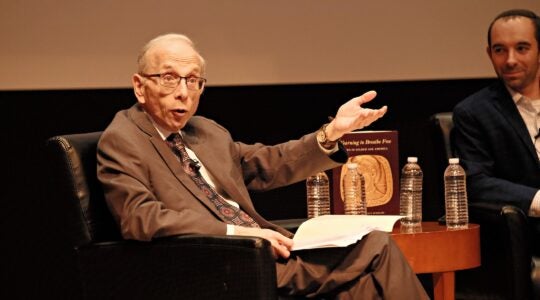May 1 was proclaimed Law Day in 1958 by President Eisenhower, in an explicit effort to pre-empt the celebration of May Day as an international worker’s holiday – one that honored the struggle for the eight-hour day begun in the US. But the celebration of the rule of law and observance of the struggle for workers’ rights are not necessarily at odds. After all, it is through the democratic enactment of laws that our rights are made real. In our system, those laws are judged to be in accord with the protections of our Constitution – or not – by impartial courts. Law Day is a good time to examine how well our legislatures and our courts uphold the critical role assigned to them.
On this Law Day, that examination yields some troubling results. The process by which those impartial judges nominated by the president are considered by the Senate has broken down – partisan obstructionism has slowed the pace of filling court vacancies to a crawl. While it is certainly true that the Senate was never meant to be a rubber stamp for any and all nominees to the bench sent over by the president, historically each candidate has been considered on his or her merits and voted up or down. This is no longer the case.
President Obama’s first -year nominees as a group have been diverse, well-qualified, and otherwise unremarkable in that they had no pronounced ideological bent. The nominations were made in consultation with the home-state senators of the nominees, regardless of party affiliation, and often had bipartisan support. They were duly evaluated by the nonpartisan American Bar Association and found to be qualified.
Nevertheless, after receiving a timely hearing by the Senate Judiciary Committee, every one of these judicial nominees named by the president in his first year was obstructed by a threatened filibuster or a real "hold" by an anonymous opposition senator. Yet whenever nominees finally got a vote on the floor of the Senate, they were confirmed with overwhelming bipartisan support, often by unanimous votes. In late April the majority leader scheduled a vote on a group of nominees who had languished for months. The opposition insisted on three hours of debate on each, but used not one minute to speak in opposition or explain the holds that kept these individuals waiting. In other words, the nominees had not been opposed on their merits, but as part of a strategy of blanket opposition.
Respect for the law will become harder to find, even on Law Day, if this pattern of obstruction and stonewall opposition continues. Further delays now as we approach election season will bring us to a point in the political calendar when the impetus to deal with existing vacancies on the federal bench – now numbering 103, or 12 percent of judgeships – will become ever weaker as senators seek to avoid any hint of controversy. The stalemate means backlogs in the courts that keep ordinary individuals seeking redress from getting a timely consideration of their cases.
The statute establishing Law Day calls for Americans to celebrate their "rededication to the ideals of equality and justice under law" – surely for senators these words have extra meaning and call them to make justice under law possible by expeditiously filling empty judicial seats.
Nancy Ratzan is president of the National Council of Jewish Women
|
Signup for our weekly email newsletter here. Check out the Jewish Week’s Facebook page and become a fan! And follow the Jewish Week on Twitter: start here. |
The New York Jewish Week brings you the stories behind the headlines, keeping you connected to Jewish life in New York. Help sustain the reporting you trust by donating today.




